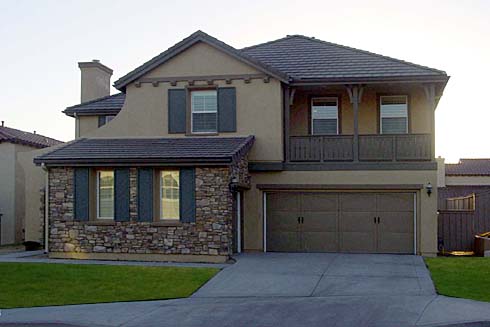SPECULATIVE BUILDER
Navigating the Real Estate Landscape: The Role of Speculative Builders in Shaping Tomorrow's Homes
Introduction:
Understanding Speculative Building:
A speculative builder is an individual who embarks on the construction of real estate without having a pre-existing contract with a definite purchaser or tenant. This distinctive approach involves a calculated risk, as the builder initiates the construction process with the belief that, due to factors such as location, quality of construction, and prevailing business conditions, a buyer or tenant will emerge before project completion.
Key Features of Speculative Building:
No Pre-Existing Contract:
Unlike contract builders who commence construction with a specific agreement in place, speculative builders undertake projects without a predetermined buyer or tenant. This approach hinges on the builder's confidence in the property's appeal and market demand.
Reliance on Location and Quality:
Speculative building often relies heavily on the strategic location of the property and the quality of construction. Builders trust that these factors, coupled with favorable market conditions, will attract interested parties during or after the project's completion.
Risk and Opportunity:
Speculative builders operate in a space where risk and opportunity coexist. While there's the risk of not securing a buyer or tenant, there's also the potential for higher returns if the property appreciates in value or if market conditions prove favorable.
Speculative Building in the Housing Industry:
Common During Low Interest Rates:
Speculative building tends to be more prevalent during periods of low interest rates. Lower interest rates often stimulate demand for housing, encouraging builders to take the risk of constructing properties without pre-existing contracts.
Responsive to Housing Demand:
The decision to engage in speculative building is often influenced by an anticipation of increased housing demand. Builders may perceive an opportunity to meet the needs of potential buyers or tenants in a market with high demand.
Adaptability to Business Conditions:
Speculative builders exhibit adaptability to general business conditions. They closely monitor economic trends, interest rates, and market dynamics to gauge the likelihood of finding interested parties for their projects.
Contrast with Contract Builders:
While speculative builders thrive on uncertainty and market dynamics, contract builders operate with more defined parameters. Contract builders have entered into agreements with specific buyers or tenants before initiating construction. This fundamental difference in approach shapes the entire construction process for each category.
Implications for Real Estate Professionals:
Real estate professionals, including agents, brokers, and developers, play a crucial role in navigating the challenges and opportunities associated with speculative building. Key considerations include:
Market Analysis:
Thorough market analysis is essential for speculative builders. Real estate professionals can provide valuable insights into market trends, demand patterns, and potential risks.
Implications for Real Estate Professionals:
Real estate professionals, including agents, brokers, and developers, play a crucial role in navigating the challenges and opportunities associated with speculative building. Key considerations include:
Market Analysis:
Thorough market analysis is essential for speculative builders. Real estate professionals can provide valuable insights into market trends, demand patterns, and potential risks.
Strategic Positioning:
Identifying strategic locations for speculative projects is key. Real estate professionals can assist in assessing the desirability of a location and its potential appeal to future buyers or tenants.
Communication and Marketing:
Effectively communicating the unique features and quality of speculative projects is crucial. Real estate professionals can contribute by devising comprehensive marketing strategies to attract potential buyers or tenants.
Conclusion:
Speculative building adds an element of anticipation and risk to the real estate landscape, with builders relying on the allure of their properties and favorable market conditions. As the housing industry evolves, the role of speculative builders continues to shape the communities we live in, reflecting the dynamic interplay between risk, opportunity, and the ever-changing demands of tomorrow's homeowners.
MORE REAL ESTATE TERMS
A, B, C, D, E, F, G, H, I, J, K, L, M, N, O, P, Q, R, S, T, U, V, W, X, Y, Z
Featured New Home

Featured Mortgage Brokers
- MOVEMENT MORTGAGE LLC, FREDERICKSBURG, VA
4920 SOUTHPOINT DR
FREDERICKSBURG, VA 22407 - OPEN MORTGAGE LLC, CORONA, CA
1840 ROCKCREST DR
CORONA, CA 92880 - KENTUCKY HOUSING CORPORATION, FRANKFORT, KY
1231 LOUISVILLE RD
FRANKFORT, KY 40601 - BANK OF ENGLAND, OLD SAYBROOK, CT
44 POND RD
OLD SAYBROOK, CT 6475 - EMBRACE HOME LOANS INC, MIDDLETOWN, RI
25 ENTERPRISE CTR
MIDDLETOWN, RI 2842